Latest News
31 March 2020
ERC Advanced grants for TU Delft researchers
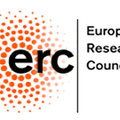
Three TU Delft researchers have been awarded an ERC Advanced Grant. Cees Dekker, Jerry Westerweel and Lieven Vandersypen will receive this European grant, which is awarded to five-year projects conducted by internationally established research leaders.
27 March 2020
3D printed component makes snorkel mask useful for medics
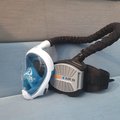
IDE researchers, in collaboration with physicians and industry, designed a unique 3D printed connector to connect an ordinary snorkel mask to a filter system. This makes the snorkel mask usable as a protective mask for medical personnel. The design has been made available worldwide on Thingyverse.
27 March 2020
Looking into the earth with sound
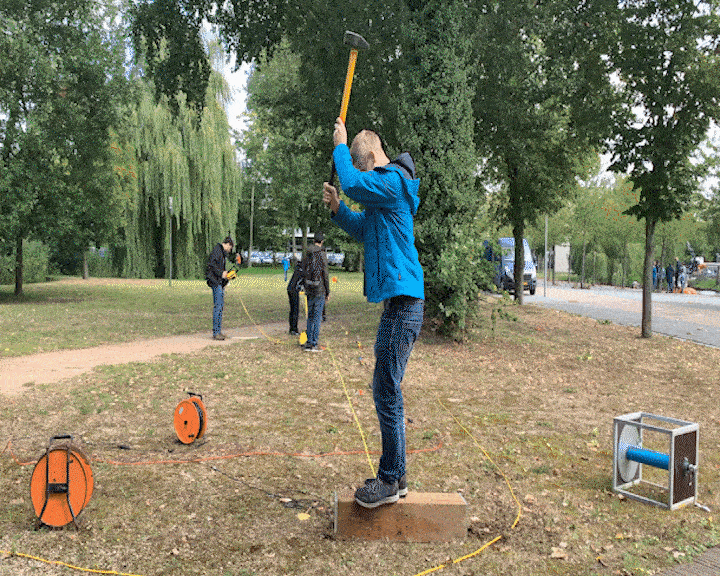
A student is hitting a metal plate with a hammer while another is looking at a computer screen in a nearby tent. What (on earth) is happening here? ‘We’re studying the earth’s interior,’ PhD and geophysicist Myrna Staring says.
20 March 2020
TU Delft works on reusable surgical masks with Reinier de Graaf and VSM

In the fight against the 'Corona shortage’ of face masks, John van den Dobbelsteen and Tim Horeman, researchers at the Department of BioMechanical Engineering department, and with lab manager Rob Luttjeboer, developed a successful way to test reused sterilised surgical masks and surgical masks made of new materials.
19 March 2020
TU Delft Master’s students start initiative for developing ventilators
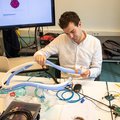
This week, under the leadership of Director of Studies for Technical Medicine Professor Jaap Harlaar, a group of Master’s students in Technical Medicine launched the OperationAIR initiative with the objective of developing a simple and relatively inexpensive ventilator as quickly as possible.
19 March 2020
Time to spare? Take an online course!

The coronavirus crisis means that many people have little or no work right now, or extra time on their hands because of cancelled appointments. For some of these people, this might be the perfect time to take an online course.
16 March 2020
Millions of euros to improve to improve the Rhine-Alpine freight corridor

Container ships that aren’t fully loaded, congested locks resulting in long waits for vessels, suboptimal navigation of ships on rivers and fully loaded ships that cannot cope with low water levels. These are common problems on inland waterways. The Horizon 2020 programme ‘Novel inland waterway transport concepts for moving freight effectively’ (NOVIMOVE) is going to use a European grant of almost 9 million euros to conduct research on how to improve the logistics of this transport system.
10 March 2020
Researchers organically engineer solar cells using enzymes in papaya fruit
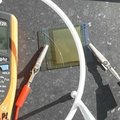
Titanium dioxide (titania) thin films are commonly used in various types of solar cells. The fabrication methods that are currently used to create such titania films require high temperatures, as well as expensive, high-end technologies. Researchers at Delft University of Technology (TU Delft) have now developed a fully organic method to engineer porous titania thin films at relatively low temperatures.
10 March 2020
The Digital Human Capital Agenda of The Hague for ‘digital talent’
The City of The Hague and over twenty businesses and educational institutions will jointly educate, train and re-train thousands of people as ‘digital talents’
04 March 2020
Zigzag DNA
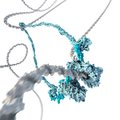
DNA in a cell can normally be compared to spaghetti on one’s plate: a large tangle of strands. To be able to divide DNA neatly between the two daughter cells during cell division, the cell organises this tangle into tightly packed chromosomes. A protein complex called condensin has been known to play a key role in this process, but biologists had no idea exactly how this worked. Until February 2018, when scientists from the Kavli Institute at Delft University of Technology, together with colleagues from EMBL Heidelberg, showed in real time how a condensin protein extrudes a loop in the DNA. Now, follow-up research by the same research groups shows that simple bundling up such loops is by no means the only way condensin packs up DNA. The researchers discovered an entirely new loop structure, which they call the 'Z loop'. They publish this new phenomenon in Nature on 4 March, where they show, for the first time, how condensins mutually interact to fold DNA into a zigzag structure.
